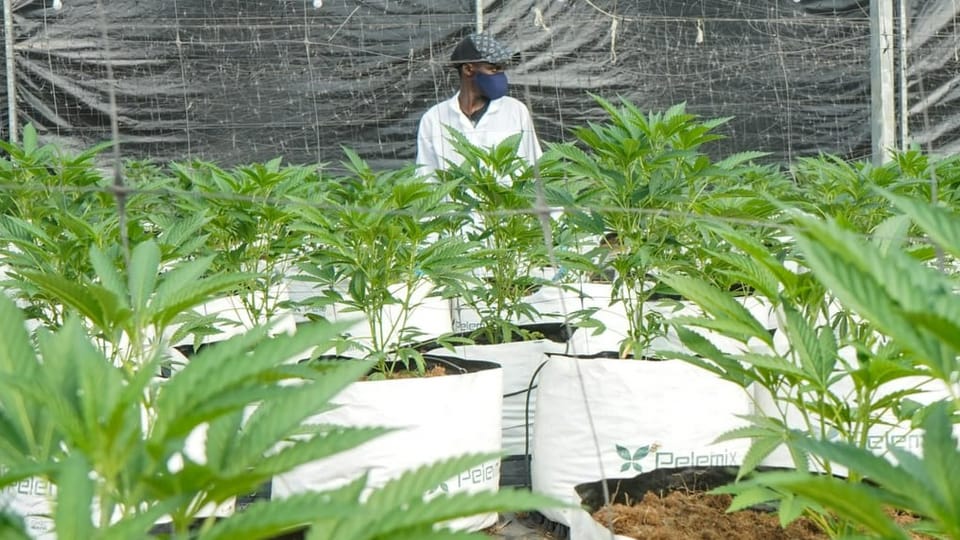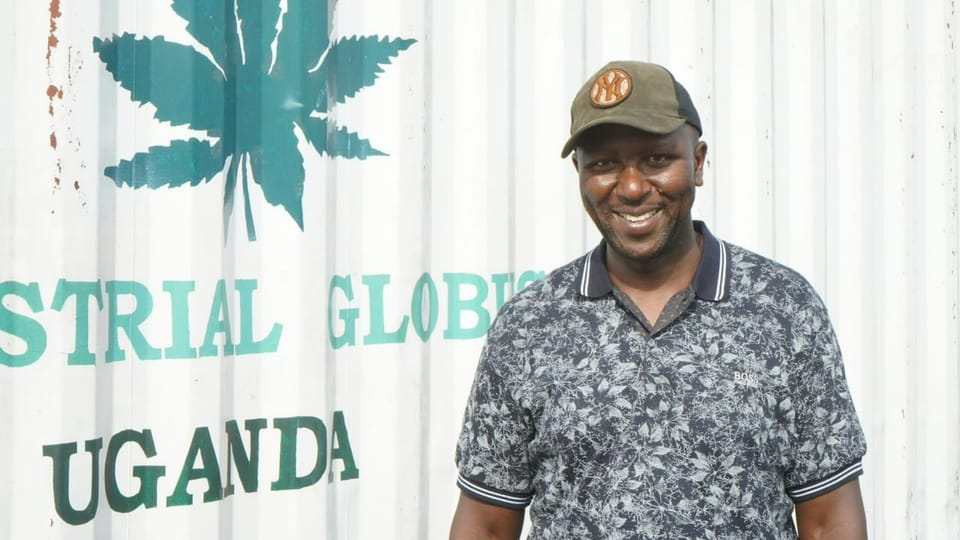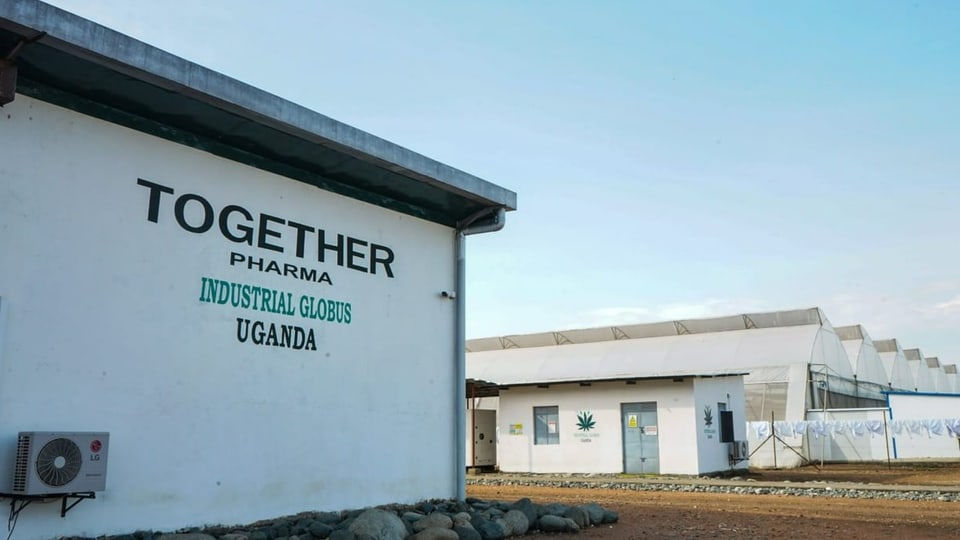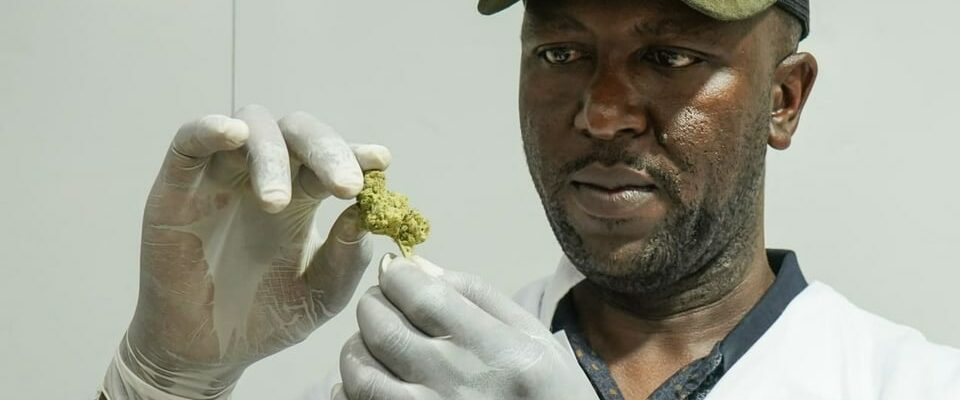contents
Global demand is increasing and hopes are high. But cannabis is unlikely to become the next big export from Africa.
The sweet-tart scent in the warehouse is breathtaking. “It smells good, you even need the essential oil of hemp in perfumery,” says Benjamin Cadet. His employees trim the dried hemp flowers.
Legend:
Hemp farmer Benjamin Cadet looks at a flower bud ready for export.
Samuel Burri/SRF
Around 40,000 hemp plants grow on three hectares in the greenhouses next to the hall. “Tangerine Sorbet”, “Black Kush” – cannabis strains with dazzling names and THC content of over 20 percent.
They are exported to Germany and Israel for medical use. Consumption is prohibited in Uganda itself. The plantation is therefore guarded by the police.
Pushed through against conservative circles
The greenhouses are almost completely automated, explains Hanfbauer Cadet: “The irrigation, ventilation, sensors, cameras – the plants are monitored around the clock.”
When cannabis exports were legalized in Uganda a few years ago, Cadet was still a member of the ruling party in parliament. He tells how he asserted himself against religious and conservative circles: “I followed the law closely as a member of parliament and as an entrepreneur. Now I can reap the rewards.”

Legend:
Agronomist Peter Owori is responsible for one of the greenhouses. The cleaned soil for the plants has to be imported.
Samuel Burri/SRF
In Uganda’s capital, Kampala, we meet another hemp farmer. He wants to remain anonymous because he grows illegally. That’s dangerous: “As my business grew, so did the threats. I know I’m breaking the law,” he says.
Not big business for small farmers
The small farmer started with a few plants, but now there are around 2000. The harvest takes place in the family circle. He earns around 500 francs a year from the sale. A nice extra – after deducting all the bribes: “The police, the village leaders and chiefs. I have to go to all of them.”
The smallholder would rather grow cannabis legally. But the license is expensive and the cultivation of medicinal cannabis is too complex. Numerous rules and laws, such as the cutting of cannabis flowers, make export difficult. That’s why Benjamin Cadet remains the only licensed hemp farmer in Uganda for the time being.

Legend:
Benjamin Cadet started the hemp plantation thanks to a joint venture with an Israeli company.
Samuel Burri/SRF
Thanks to Israeli partners with sufficient capital, Cadet was able to set up what it says is the largest hemp production facility in Africa. He now employs 150 people from the surrounding villages. This is reminiscent of colonial times: the plantation owners, the cheap labor, the export of the raw material to Europe.
Plantation with little local added value
Cadet would like to strengthen local processing: «My dream is to have the whole value chain here. Like making hemp oil.” But the law doesn’t allow that.

Legend:
The plantation of the company “Industrial Globus” with a warehouse and greenhouses.
Samuel Burri/SRF
A number of African countries have adjusted their laws in recent years to make it easier to grow cannabis. But medical marijuana isn’t becoming an export hit anytime soon.
And even if – as in Uganda: The classic model of plantation management in Africa remains: Many work for it, only a few make money with it.
